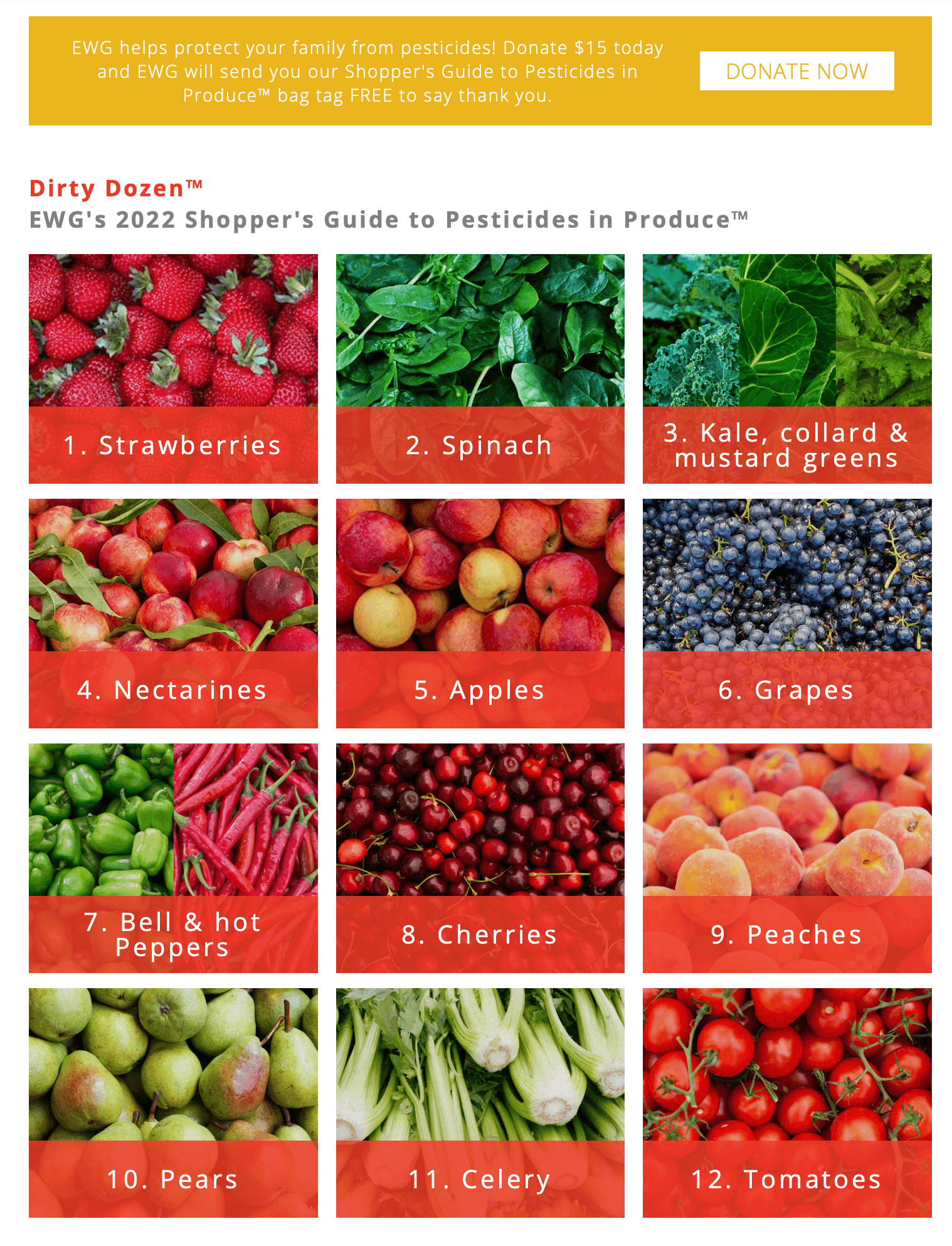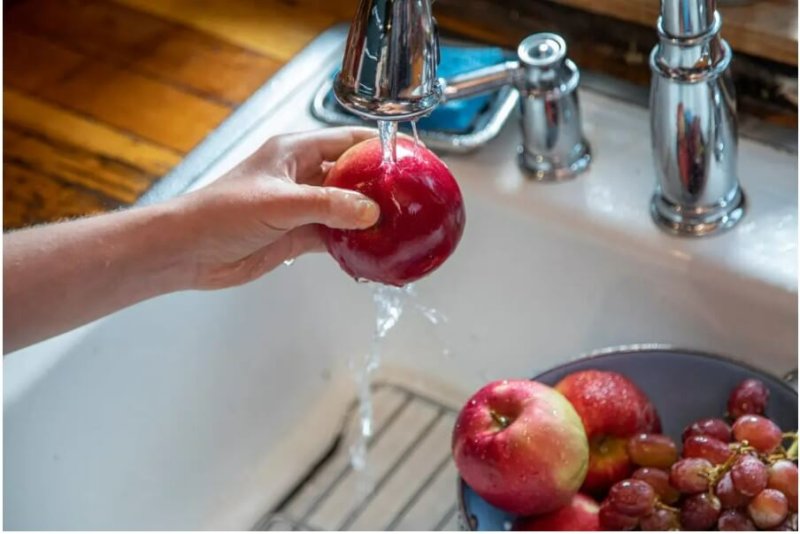
- Peer reviewed research shows that the list’s recommendation to substitute organic fruits and vegetables for conventional produce does not result in any decrease in risk because residues are so very low on conventional produce, if present at all.
- Peer reviewed research shows the list’s fear-based messaging may discourage purchasing of any produce – organic or conventional – among low income consumers.
- Peer reviewed research found that no recognized or established scientific procedures are followed in the development of this list.
- The “dirty dozen” list authors admit in their report that they do not follow basic rules of risk assessment or the tenets of toxicology. From the author’s own website: “The Shoppers Guide does not incorporate risk assessment into the calculations.”
- Government sampling conducted by U.S. Department of Ag (USDA) consistently shows that over 99% of residues found on foods were well below safety levels established by the Environmental Protection Agency and one-third had no detectable residues at all.
- An analysis by University of California toxicologists found that residues are so low, if present at all, that a child could eat hundreds to thousands of servings of a fruit or vegetable in a day and still not have any health effects due to residues.
Yet, despite all of these facts and studies, the list authors continue to release their so-called “dirty dozen” list and numerous inaccuracies about produce safety hurting consumers and insulting farmers.
But there is a bright spot – media and consumers have listened to the scientific and nutrition communities who have urged them to ignore this list. Today, attention on the “dirty dozen” list is waning with significantly less media outlets covering it. Of equal importance, the list now evokes a strong negative reaction on social media channels with a majority of posts critical of the “dirty dozen” list and urging the list authors to abandon it.
But in addition to all the facts cited above (and there are even more reasons at safefruitsandveggies.com), it must be recognized that calling wholesome and nutritious fruits and vegetables “dirty” disrespects the farmers and farm workers who are working diligently and continually throughout the pandemic to grow, nurture and harvest these crops to keep supplies of these healthy foods moving to consumers.
This is why we ask you to join the AFF by participating in our new contest on social media to share how this unscientific list hurts families, farmers and farm workers. Simply post a picture of your favorite fresh fruits and veggies, of you washing fresh produce (view the Just Wash It section for proper washing and handling information), or just enjoying your favorite healthy snack along with the hashtag #NoMoreDirtyDozen. The AFF will help our contest winner enjoy more produce with a $250 gift card to their local grocery store.
A version of this article was originally posted at Safe Fruits and Veggies and is used here with permission. Check out Safe Fruits and Veggies on Twitter @SafeProduce































